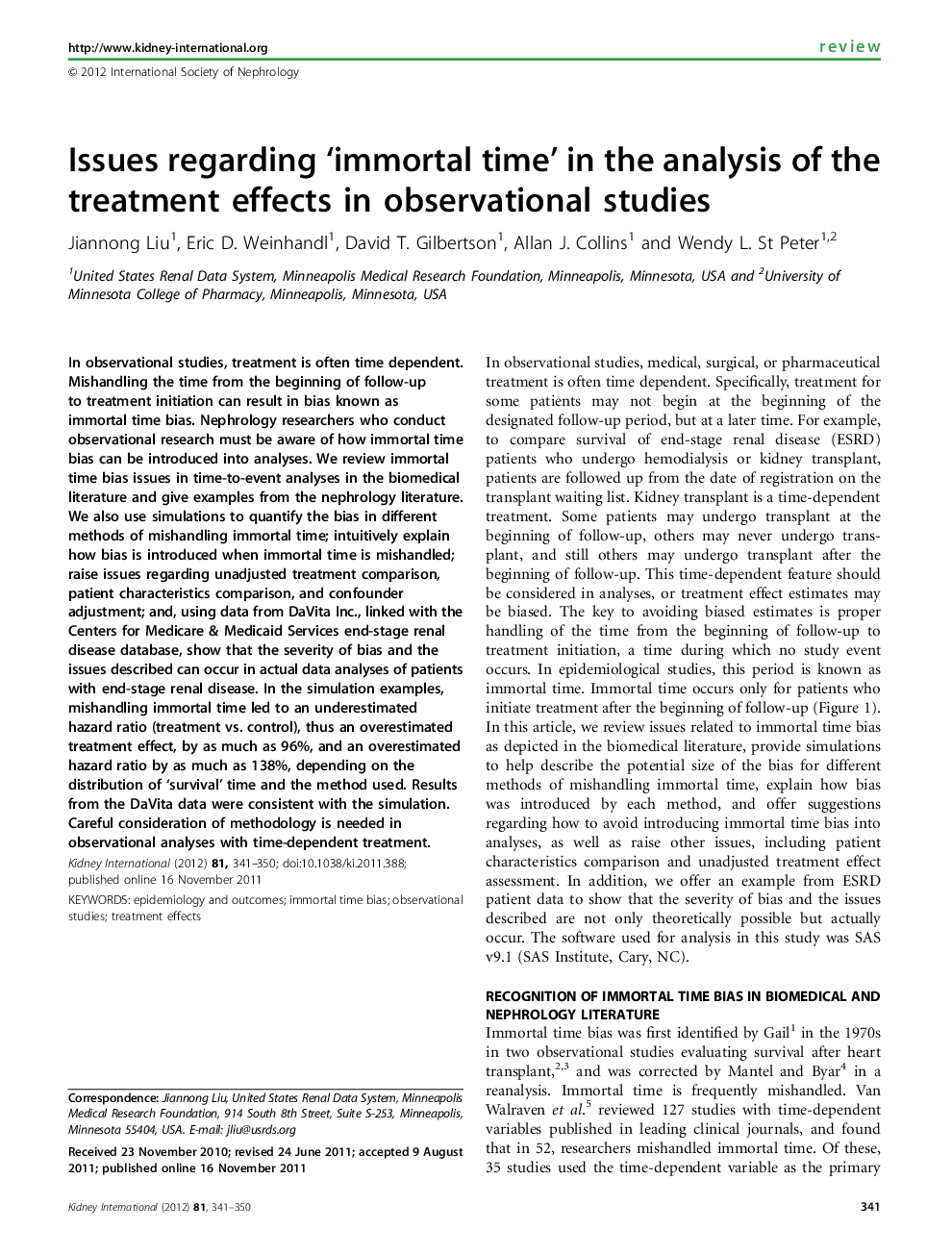| کد مقاله | کد نشریه | سال انتشار | مقاله انگلیسی | نسخه تمام متن |
|---|---|---|---|---|
| 3883552 | 1249428 | 2012 | 10 صفحه PDF | دانلود رایگان |

In observational studies, treatment is often time dependent. Mishandling the time from the beginning of follow-up to treatment initiation can result in bias known as immortal time bias. Nephrology researchers who conduct observational research must be aware of how immortal time bias can be introduced into analyses. We review immortal time bias issues in time-to-event analyses in the biomedical literature and give examples from the nephrology literature. We also use simulations to quantify the bias in different methods of mishandling immortal time; intuitively explain how bias is introduced when immortal time is mishandled; raise issues regarding unadjusted treatment comparison, patient characteristics comparison, and confounder adjustment; and, using data from DaVita Inc., linked with the Centers for Medicare & Medicaid Services end-stage renal disease database, show that the severity of bias and the issues described can occur in actual data analyses of patients with end-stage renal disease. In the simulation examples, mishandling immortal time led to an underestimated hazard ratio (treatment vs. control), thus an overestimated treatment effect, by as much as 96%, and an overestimated hazard ratio by as much as 138%, depending on the distribution of ‘survival’ time and the method used. Results from the DaVita data were consistent with the simulation. Careful consideration of methodology is needed in observational analyses with time-dependent treatment.
Journal: Kidney International - Volume 81, Issue 4, 2 February 2012, Pages 341–350